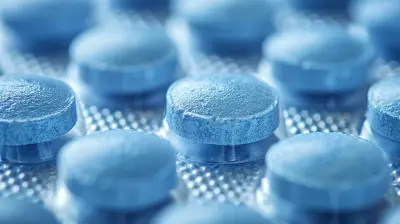The Role of Fiber in Men's Digestive Health
25 April 2025
When it comes to keeping your gut in check, fiber plays a starring role. Yet, many men fail to get enough of this essential nutrient in their diet. If you've ever struggled with digestive issues, sluggish metabolism, or even weight gain, your fiber intake might be to blame.
But why is fiber so important? And how does it impact men's digestive health specifically? Let's break it down in simple terms and get to the bottom of why fiber should be a priority in your daily diet.
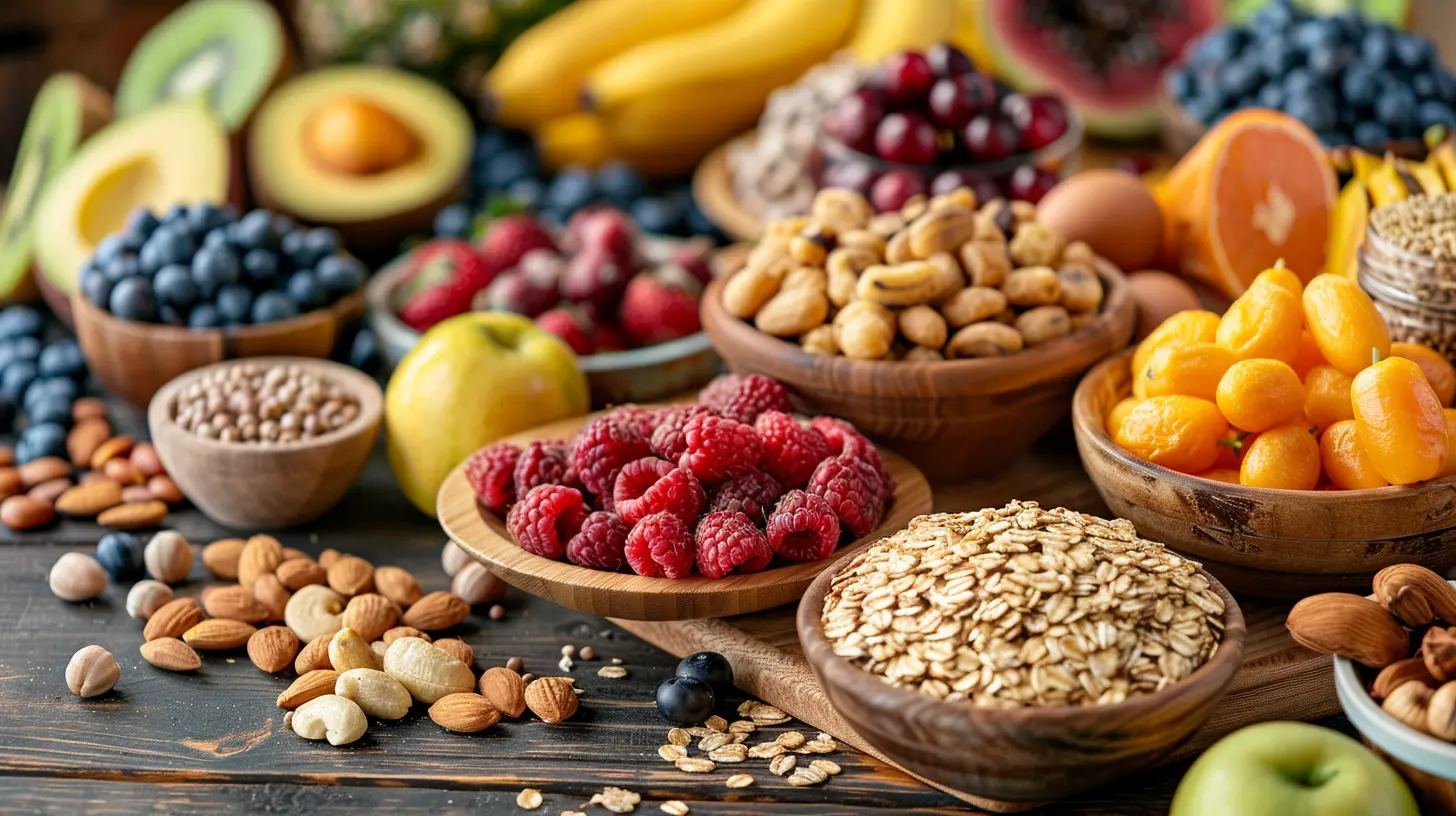
What Is Fiber, and Why Does It Matter?
Fiber is a type of carbohydrate that your body can't fully digest. Unlike other carbs that break down into sugar, fiber moves through your digestive system mostly intact, doing wonders along the way.There are two main types of fiber:
- Soluble Fiber – Dissolves in water, forming a gel-like substance that helps lower cholesterol and regulate blood sugar. Found in foods like oats, beans, apples, and citrus fruits.
- Insoluble Fiber – Adds bulk to your stool and helps food move smoothly through your digestive system. Found in whole grains, nuts, vegetables, and seeds.
Both types are crucial for digestion, but they each serve different roles in keeping your gut happy and healthy.
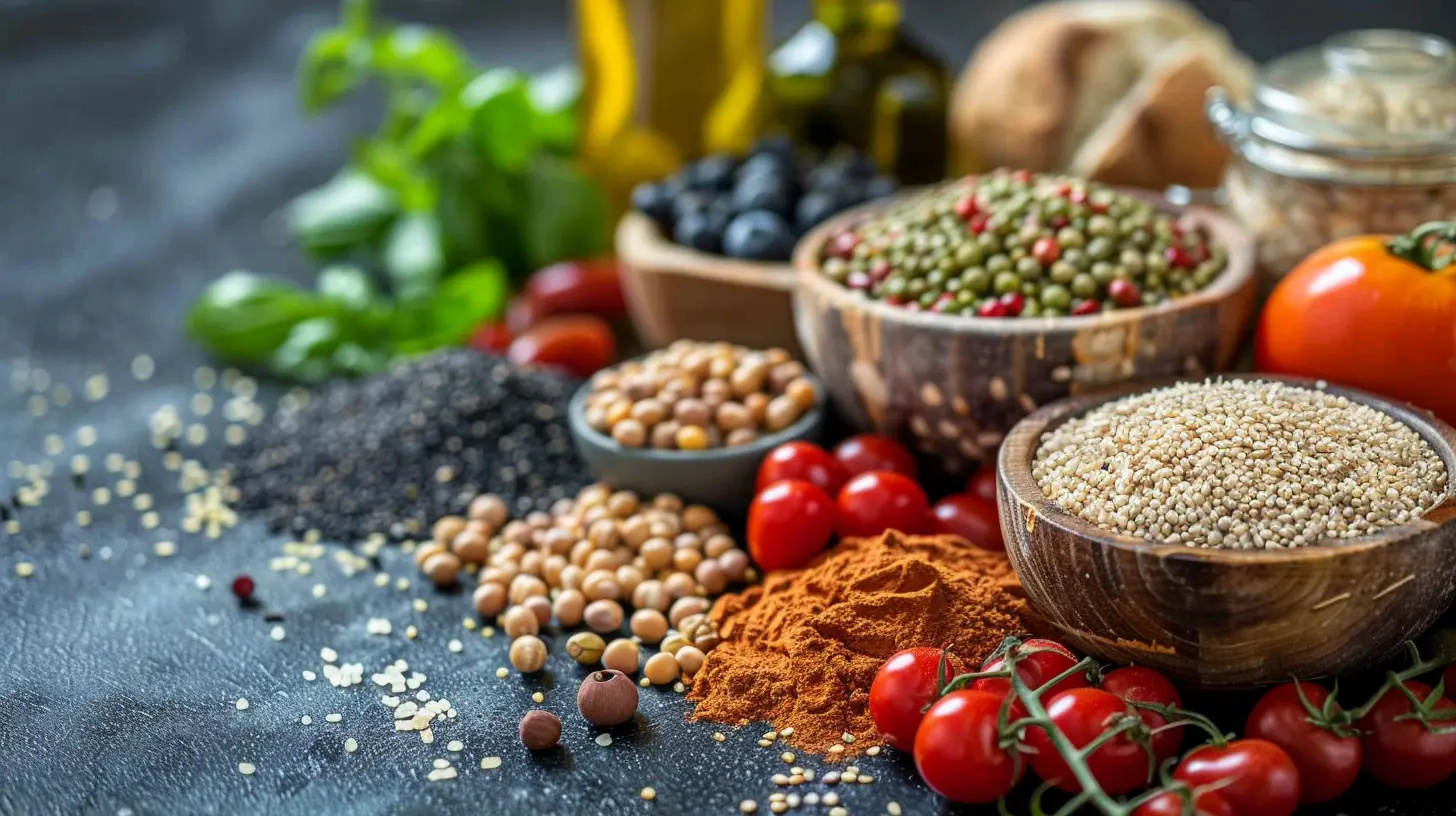
How Fiber Supports Men's Digestive Health
Men often struggle with digestion due to poor eating habits, lack of hydration, and insufficient fiber intake. Here’s how getting enough fiber can improve overall gut health:1. Promotes Regular Bowel Movements
Let’s face it—constipation is no joke. If you've ever spent more time in the bathroom than you'd like, you know how frustrating and uncomfortable it can be. Fiber adds bulk to stool and softens it, making it easier to pass. Insoluble fiber, in particular, works like a broom, sweeping waste through your intestines and keeping things moving smoothly.2. Reduces the Risk of Hemorrhoids and Diverticulosis
Chronic constipation can lead to hemorrhoids—painful, swollen veins in the rectum. Over time, straining can also cause diverticulosis, where small pouches develop in the walls of your colon. A high-fiber diet helps prevent these issues by keeping bowel movements regular and reducing pressure on the digestive tract.3. Feeds Healthy Gut Bacteria
Your gut is home to trillions of bacteria—some good, some bad. Fiber acts as a prebiotic, feeding the beneficial bacteria that support digestion, immunity, and even mental health. A well-balanced gut microbiome means fewer digestive problems, better absorption of nutrients, and a stronger immune system.4. Helps Prevent Acid Reflux and GERD
If you've ever experienced heartburn, you know how unpleasant it can be. A fiber-rich diet can help by absorbing excess stomach acid and moving food through your digestive system more efficiently. This can reduce the likelihood of acid reflux and gastroesophageal reflux disease (GERD).5. Lowers the Risk of Colon Cancer
Colon cancer is one of the most common cancers in men. Studies suggest that a high-fiber diet can lower the risk by promoting regular bowel movements and reducing inflammation in the gut. Fiber also helps remove toxins and carcinogens from the colon before they can do damage.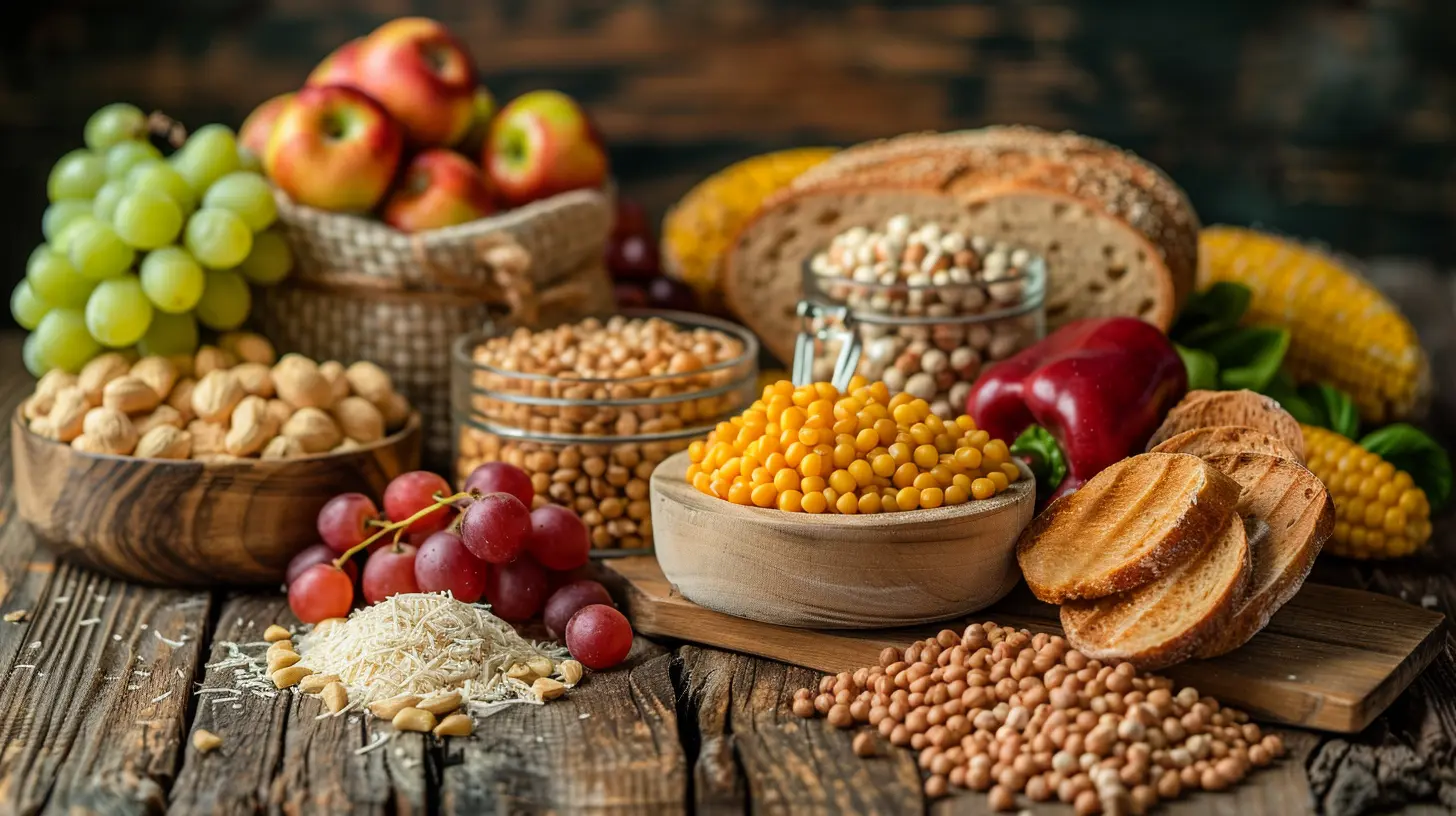
More Than Just Digestion: Other Benefits of Fiber
Fiber does more than keep your digestive system on track. It also plays a crucial role in:- Weight Management – High-fiber foods keep you full longer, reducing overeating and cravings.
- Blood Sugar Control – Slows the absorption of sugar, preventing spikes and crashes.
- Heart Health – Lowers bad cholesterol levels, reducing the risk of heart disease.
- Improved Energy Levels – Stable blood sugar means steady energy throughout the day.
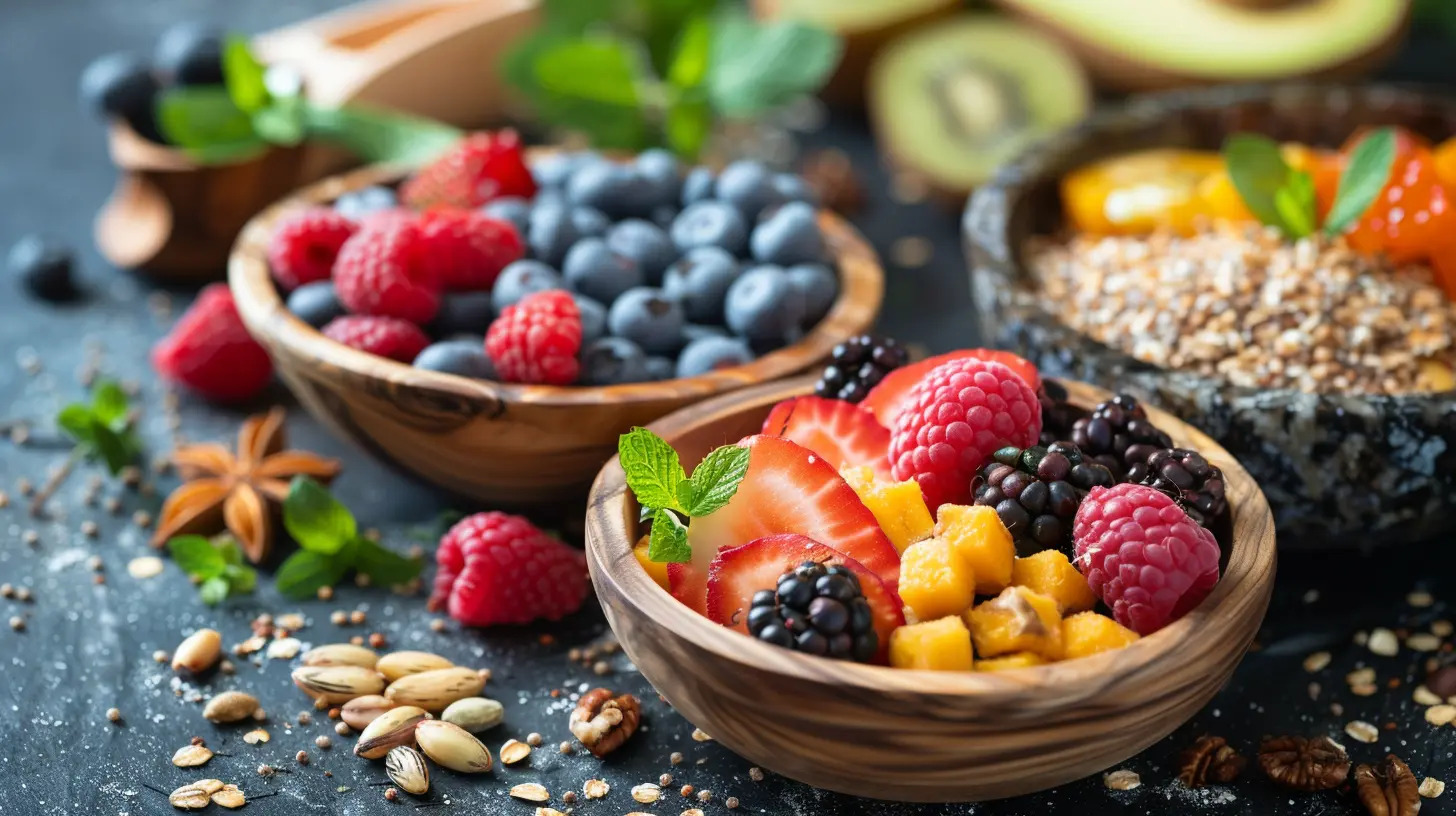
How Much Fiber Do Men Need?
The recommended daily fiber intake for men varies by age:- Men under 50: Around 38 grams per day
- Men over 50: Around 30 grams per day
Unfortunately, most men fall short, averaging only about 15 grams per day—less than half of what’s recommended!
Best High-Fiber Foods for Men
If you’re not getting enough fiber, it's time to add more of these powerhouse foods to your diet:Fruits
- Apples- Pears
- Berries (strawberries, raspberries, blackberries)
- Oranges
- Bananas
Vegetables
- Broccoli- Carrots
- Brussels sprouts
- Sweet potatoes
- Spinach
Whole Grains
- Oats- Brown rice
- Quinoa
- Whole wheat bread/pasta
- Barley
Legumes & Beans
- Lentils- Black beans
- Chickpeas
- Kidney beans
- Peas
Nuts & Seeds
- Chia seeds- Flaxseeds
- Almonds
- Walnuts
- Sunflower seeds
Tips to Increase Your Fiber Intake
If you're new to a high-fiber diet, making drastic changes can lead to bloating or discomfort. Here are some easy ways to boost your fiber intake without upsetting your stomach:- Start Slow – Gradually increase your fiber intake to let your gut adjust.
- Drink More Water – Fiber absorbs water, so staying hydrated helps prevent bloating.
- Swap White for Whole – Choose whole-grain options instead of white bread, pasta, or rice.
- Snack Smart – Munch on nuts, fruits, and raw veggies instead of processed snacks.
- Add Seeds to Meals – Sprinkle chia or flaxseeds over yogurt, salads, or smoothies.
Final Thoughts
Fiber is a game-changer for men's digestive health. From preventing constipation to lowering colon cancer risk, this powerhouse nutrient does it all. Yet, many men fail to eat enough fiber-rich foods, leading to unnecessary digestive distress.By making small, intentional changes to your diet, you can keep your gut in top shape and enjoy better overall health. So, next time you plan your meals, think fiber first—your digestive system will thank you!
all images in this post were generated using AI tools
Category:
Mens HealthAuthor:

Eileen Wood
Discussion
rate this article
4 comments
Sabina Wade
“Fiber: the unsung hero of men’s digestive health! It’s like a superhero for your gut, fighting bloating daily!”
May 15, 2025 at 2:51 PM

Eileen Wood
Absolutely! Fiber truly is essential for promoting gut health and reducing bloating—definitely a superhero in men's nutrition!
Kira Thompson
Great insights on fiber's importance for men!
April 28, 2025 at 4:00 PM

Eileen Wood
Thank you! I'm glad you found the insights valuable. Fiber is indeed essential for men's digestive health!
Mindy Valentine
Great article! Adding more fiber to your diet is a tasty way to support digestive health. Remember, a happy gut leads to a happy you! Keep up the good work!
April 28, 2025 at 4:40 AM

Eileen Wood
Thank you! I’m glad you found the article helpful. Here’s to a happy gut and overall health!
Avery Coleman
This article piqued my curiosity! I never realized fiber could play such a significant role in men’s digestive health. What are some high-fiber foods that can easily fit into a busy lifestyle? Would love to know more!
April 26, 2025 at 3:47 PM

Eileen Wood
I'm glad you found the article insightful! Some high-fiber foods that are easy to incorporate into a busy lifestyle include oats, quinoa, lentils, nuts, fruits like bananas and apples, and veggies like carrots and broccoli. Quick snacks like popcorn or whole-grain crackers can also help boost your fiber intake on the go!

